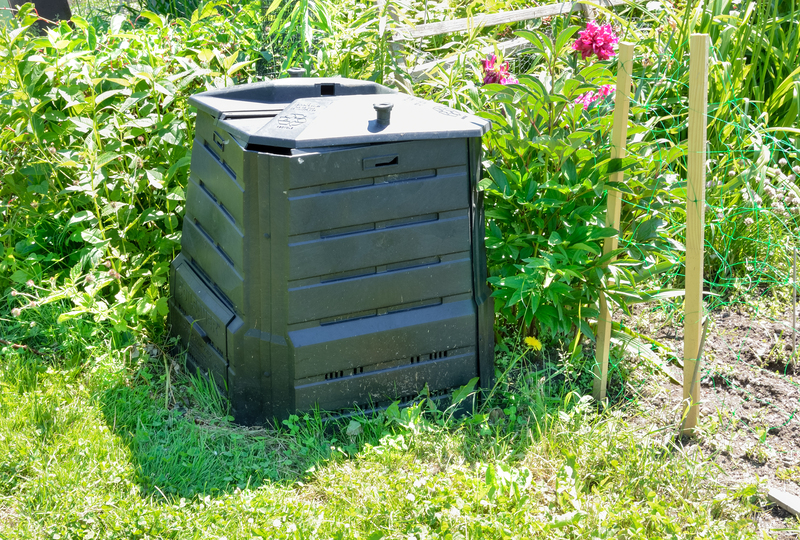Discovering the Benefits of Glass Recycling
In today's rapidly evolving world, environmental conservation is more crucial than ever. One significant way we can contribute to a greener planet is by understanding the importance of glass recycling. This article delves into the fascinating benefits of recycling glass, emphasizing how it can positively impact both the environment and the economy.
The Basics: What is Glass Recycling?
Glass recycling involves the process of converting waste glass into reusable products. Unlike many other materials, glass is 100% recyclable and can be recycled endlessly without loss of quality or purity. This characteristic makes it a precious resource in our efforts toward sustainable living.
The Process of Glass Recycling
The glass recycling process is straightforward yet effective. It involves collecting used glass, sorting it by color, crushing it into small pieces, and then melting it down before molding it into new glass products. By understanding this cycle, individuals and industries alike can appreciate its simplicity and efficacy.

The Environmental Benefits of Recycling Glass
Recycling glass has numerous environmental perks. Here are some key advantages:
- Conserving Natural Resources: Each ton of glass recycled saves around 1,300 pounds of sand, 410 pounds of soda ash, and 380 pounds of limestone. Everything adds up when we consistently recycle glass, preserving our planet's finite resources.
- Energy Efficiency: Recycling glass takes about 40% less energy than manufacturing new glass from raw materials. This significant energy reduction contributes to lowering carbon emissions, which help in combating climate change.
- Reduction in Waste: By recycling glass, we reduce the volume of waste sent to landfills. Less waste means less methane emission, which is a powerful greenhouse gas, contributing to a healthier planet.
Economic Incentives of Glass Recycling
The economic impact of glass recycling should not be underestimated. Here's how recycling glass benefits economies:
- Job Creation: The recycling industry creates numerous job opportunities ranging from collection and sorting to processing and selling recycled products. These jobs are crucial for local economies, especially in areas with high unemployment rates.
- Cost Savings: Manufacturing with recycled glass saves money by reducing the need for raw materials and energy, ultimately lowering production costs. These savings can translate into lower prices for consumers.
- Market Growth: As demand for sustainable products rises, industries engaged in producing recycled glass are benefitting from a burgeoning market. This growth encourages further investment in recycling technologies and infrastructure.
Social and Community Benefits
Beyond environmental and economic gains, glass recycling also impacts communities positively:
- Community Engagement: Recycling programs can bring communities together, fostering a sense of responsibility and collaboration among residents. When people work together to achieve sustainability goals, communities become more cohesive and environmentally conscious.
- Awareness and Education: Glass recycling initiatives often promote environmental awareness and education, highlighting the importance of sustainable practices. Educated communities are better equipped to implement effective recycling programs and make informed decisions.
- Beautification and Cleanliness: By reducing the amount of litter and waste, glass recycling contributes to cleaner, more beautiful public spaces. This not only enhances community pride but also attracts tourists and investment.

How Individuals Can Contribute
Individual efforts are vital to the success of glass recycling. Here are some practical tips for contributing to this essential initiative:
- Separate Your Waste: Properly sorting glass from other recyclable materials can significantly enhance the efficiency of recycling facilities.
- Participate in Local Programs: Engage with and support local recycling programs by following their guidelines and encouraging others to do the same.
- Purchase Recycled Products: Choosing products made from recycled glass helps close the loop and stimulate demand for recycled materials.
Overcoming Challenges in Glass Recycling
While there are immense benefits, glass recycling does face challenges, such as contamination of recyclables and the logistics of collection and sorting. Addressing these hurdles is crucial for maximizing recycling efficacy:
- Improving Public Awareness: Educating the public about what can and cannot be recycled helps reduce contamination rates.
- Investing in Technology: Advanced sorting technologies can efficiently separate contaminants from glass, enhancing the recycling quality.
- Streamlining Logistics: Developing efficient collection systems reduces the cost and complexity of recycling programs.
Conclusion
Glass recycling is a powerful tool in the pursuit of environmental sustainability. The plethora of benefits it offers--from conserving natural resources and reducing carbon emissions to fostering economic growth and community engagement--make it a crucial component of any comprehensive recycling strategy. By increasing our understanding and participation in glass recycling, we can collectively make a significant impact on our planet's health and wellbeing.
Whether you're an individual aiming to make a difference or part of a large organization committed to sustainability initiatives, embracing and promoting glass recycling will lead us towards a brighter, more sustainable future.